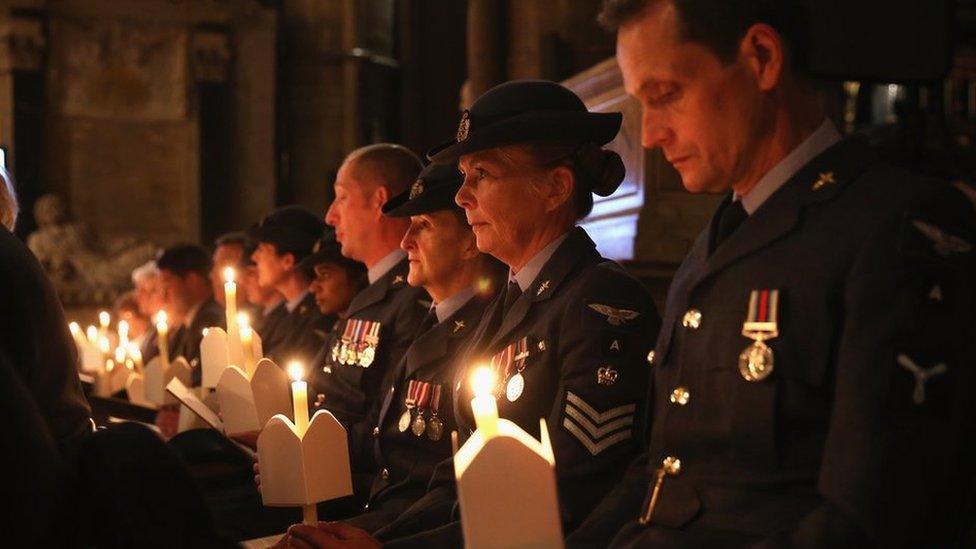World War One: Warhorse Warrior awarded Dickin Medal
- Published
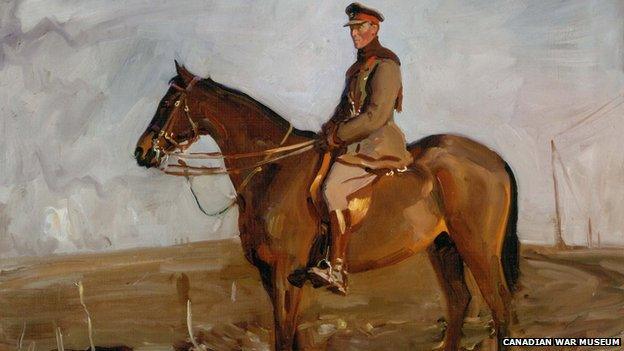
Warrior was ridden by Gen Jack Seeley in World War One
A World War One warhorse has been awarded an "animal Victoria Cross" to mark the contribution of all animals that served with British forces.
The honorary PDSA Dickin Medal, external was posthumously given to equine hero Warrior at a ceremony at the Imperial War Museum in London.
The medal was accepted by horse racing broadcaster Brough Scott, the grandson of Warrior's rider Gen Jack Seely.
Warrior is the 66th recipient of the medal from animal charity PDSA.
He is the first to receive an honorary award and the first from WW1.
Burning stables
Dubbed "the horse the Germans couldn't kill", Warrior served on the front line for the duration of the war after arriving on the Western Front on 11 August 1914.
Warrior was subjected to machine gun attacks by air, survived falling shells at the Battle of the Somme, was buried under debris and got stuck in mud at Passchendaele, and was twice trapped under the burning beams of his stables.
Mr Scott said it was a proud day for his family: "It's very touching, humbling too, when you think of all the other animals who didn't make it back.
"One hundred years ago last Saturday he was under shell fire for the first time and he didn't come back until Christmas 1918."
The PDSA said Warrior was a "true survivor" and his story "epitomises the vital roles played by millions of animals".
PDSA director general Jan McLoughlin said Warrior survived against all the odds.
"His story reflects the bravery and sacrifice that millions of animals displayed during the Great War," she said.
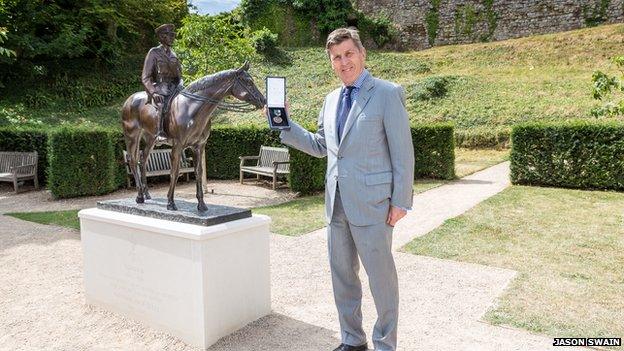
Horse racing expert Brough Scott is the grandson of Gen Seely
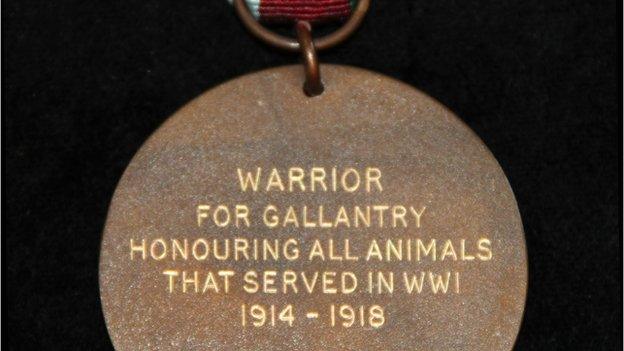
Warrior's Dickin Medal is the first to be awarded for World War One
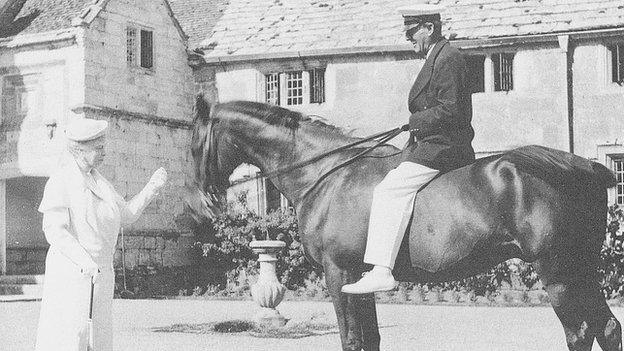
Warrior and Gen Seely met Queen Mary, the wife of George V
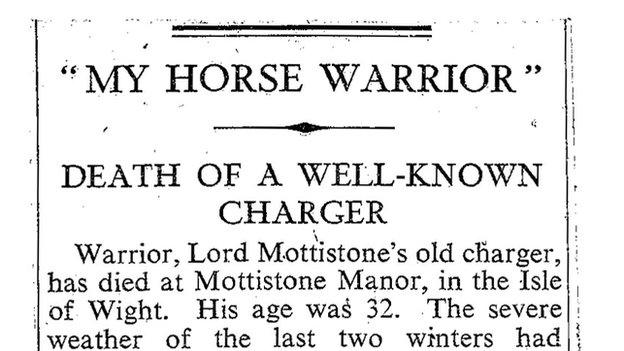
An obituary to Warrior appeared in The Times on 5 April 1941
Warrior - owned by Gen Seely, who later became Lord Mottistone - was injured but survived the war and returned home to the Isle of Wight in 1918 where he lived with the Seely family until his death in 1941, aged 32.
'Extraordinary example'
The award has been backed by celebrities including Steven Spielberg, director of the Oscar-nominated WW1 film War Horse, comedian Paul O'Grady, entertainer Sir Bruce Forsyth and broadcaster Matt Baker.
Spielberg said: "Warrior is an extraordinary example of the resilience, strength, and profound contribution that horses made to the Great War. Recognising him with an Honorary PDSA Dickin Medal is a fitting and poignant tribute not only to this remarkable animal but to all animals that served."
The Dickin Medal, instituted by PDSA founder Maria Dickin in 1943, is regarded as the highest honour an animal can receive for serving in military conflict.
It has been given to 32 pigeons, 29 dogs, four horses including Warrior, and one cat.
The most recent was awarded posthumously to Labrador Sasha, a bomb search dog with the Royal Army Veterinary Corps, in May this year.

World War One 1914-1918
World War One was a truly global conflict. The war was fought in Europe, the Middle East, Africa and Asia. Around 17 million soldiers and civilians were killed between 1914 and 1918.
Britain declared war on Germany on 4 August 1914. In 1916, conscription was introduced for the first time. As millions of men left for the front, women filled their roles in factories, shops and offices across the country.
On the Western Front the opposing armies were trapped in a stalemate. Many lives were lost fighting over just a few miles of of land. The Battle of the Somme was one of the largest of WW1 and nearly 20,000 British soldiers died on the first day.
WW1 saw advancements in medicine and technology - the invention of plastic surgery, innovations in flight, and new treatments for mental health.
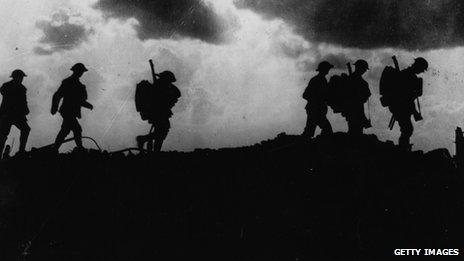

- Published1 September 2014
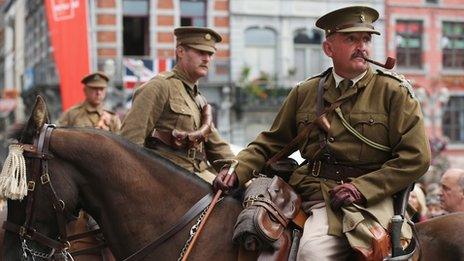
- Published24 August 2014
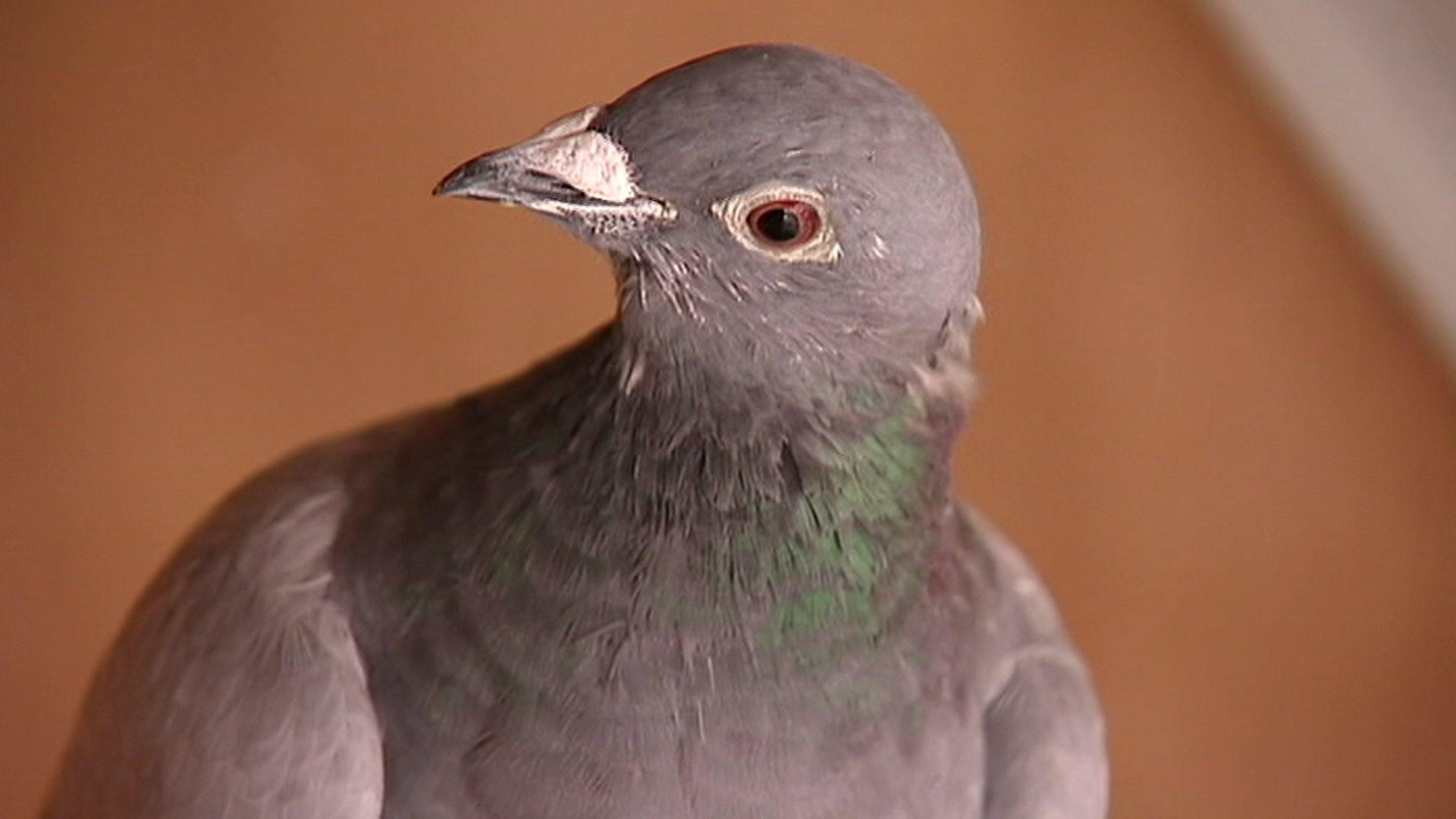
- Published7 August 2014

- Published5 August 2014
